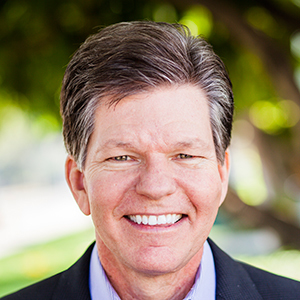Some parts of the Bible are simply more difficult to believe than others.
I have found these words spoken by Jesus in John 15:7 to be some of the most challenging in the Gospels. Strangely, in many ways I think we find it more difficult to believe that the Lord will give us anything we ask for than it is for us to believe in the miracles of Jesus ‚ÄĒ like his raising Lazarus from the dead (in John 11).
It seems that it’s easier for us to imagine there was a special time very long ago and very far away where dead bodies could come back to life, a man could walk on water, and lunch for 5,000 could spring into existence from a handful of loaves and fish. These are physical miracles, distant from us in their performance, making them easier to believe because they are not touching our lives in immediate, tangible ways.
But this promise about prayer in John 15:7 is different. It leaps out of the ancient text and challenges our faith where we live right now. This promise that God will provide whatever we ask is very difficult to brush aside as something only meaningful to ancient Bible characters. Jesus was speaking not only to his closest followers at the moment, but to all generations of Christians that would follow ‚ÄĒ including us today.
My new book, brings this remarkable verse back to life for our time and attempts to address the reasons why we have trouble taking this promise seriously. Jesus said it, and he really meant it, so why don’t we believe it?
While doing the research for this book and dwelling on the words of this verse, I found that apprehending this promise in its proper context and overcoming the modern objections to its veracity has been one of the most fruitful endeavors in my Christian life.
Here are four points that I found helpful in providing a fuller appreciation and apprehension of this wonderful promise.
1. While this promise is a conditional (Jesus said, ‚ÄúIf you remain in me, and my words remain in you, ask whatever you wish and it will be done for you‚ÄĚ), I make the case that most mature Christians I know fulfill this conditional and hence ought to expect the result from their prayers ‚ÄĒ a wildly exciting prospect.
2. I often hear ‚ÄúWe need to be careful with verses like John 15:7 because it is sometimes abused by ‚Äėword-faith‚Äô or ‚Äėprosperity‚Äô preachers who have wandered into heresy.‚ÄĚ Although this is true, my response is that I‚Äôm not going to let those who might abuse this passage rob me of gleaning the benefits of this off-the-charts promise that the Lord himself offered to us.
3. We often find this promise difficult because we are immersed in a culture that simply does not think supernatural things happen ‚ÄĒ like answers to prayer. Our cultural immersion in ‚Äúnaturalism‚ÄĚ affects us all, no matter how spiritual we are. But the Lord can help us overcome it and give us a fresh supernatural outlook. In turn, we will have greater trust that the Lord will fulfill his word to us.
4. To see this passage really transform your prayer life, the context of this passage needs to be given careful consideration. Jesus speaks this promise in the course of giving his famous ‚Äúvine and branches‚ÄĚ discourse. The thrust of the whole passage is about being plugged into Jesus (the vine) and bearing his fruit for his kingdom.
The astonishing conclusion then is this. If you are abiding in the Lord, and his words are abiding in you and you want to serve him and bear his fruit, then you can take this to the bank. You truly can ask for anything and it will be done for you! This is based on the authority of the infallible words of Jesus himself.
I urge you to put this into practice today. If you have any need in your service to the Lord, ask him boldly and prepare to praise him for his amazing provision.
Craig J. Hazen is the founder and director of Biola’s master’s program in Christian apologetics and the author of (Harvest House Publishers, August 2018). He holds a Ph.D. from the University of California, Santa Barbara.
 ļŕ›ģ ”∆Ķ
ļŕ›ģ ”∆Ķ
.jpg)

